ℹ️ To see the original source, click on the page image.
- People like certainty more than uncertainty and more specific information than not so specific. It may be the reason behind the ambiguity effect: people tend to avoid choices bound to the real or perceived lack of information. And as a result tend to avoid choices with more ambiguity.
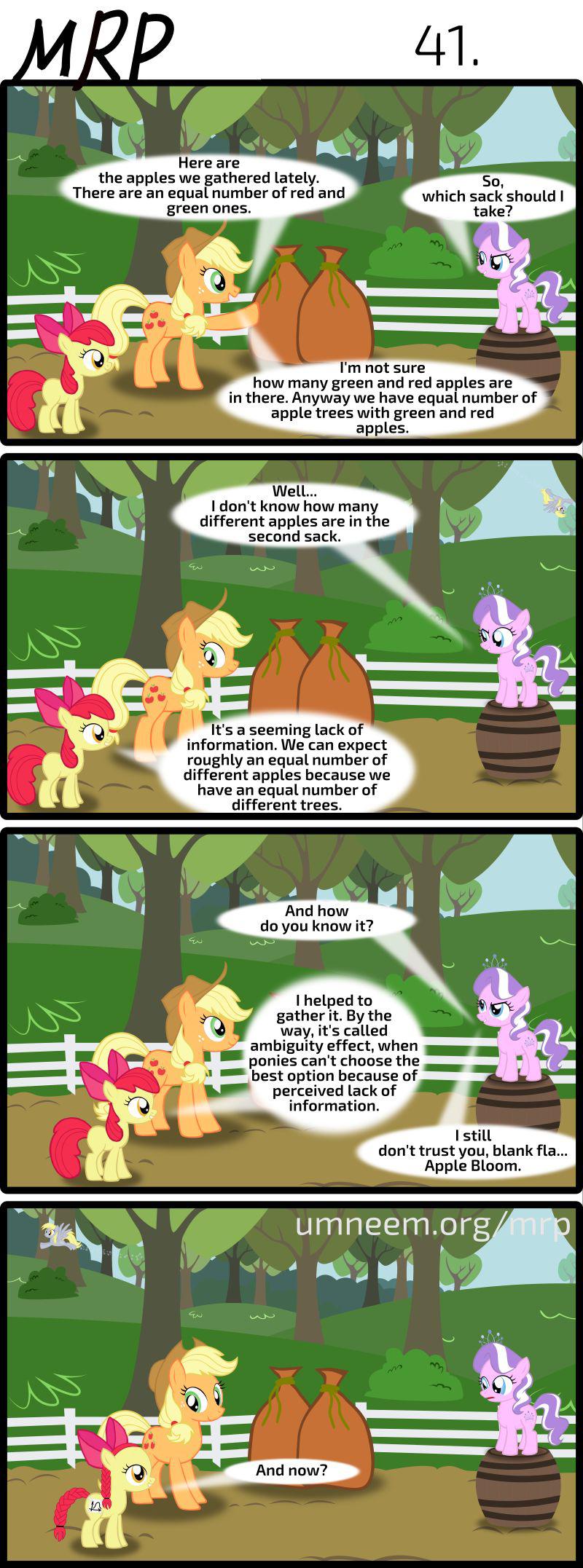
- The same applies for the tendency to judge harmful actions as worse, or less moral than equally harmful inactions.
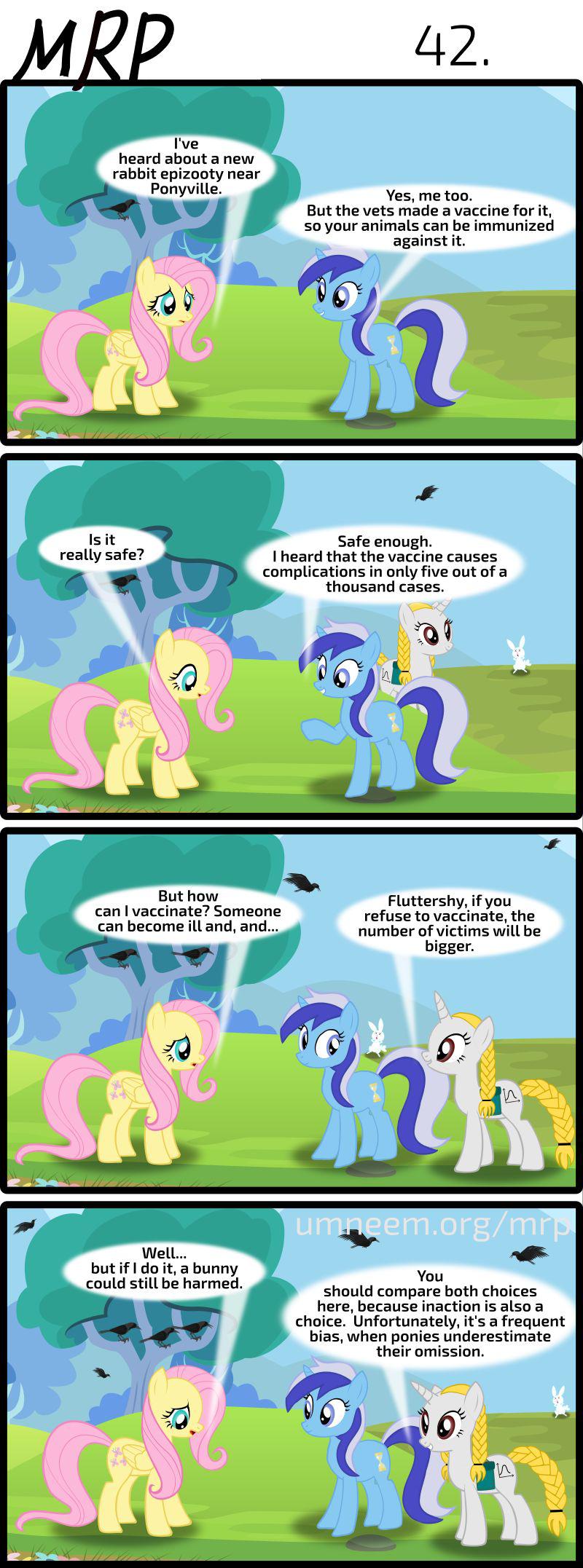
- The group attribution error may be considered a kind of heuristic. And it may work from time to time. But usually the characteristics of an individual member of the group are not fully reflective of the group as a whole.
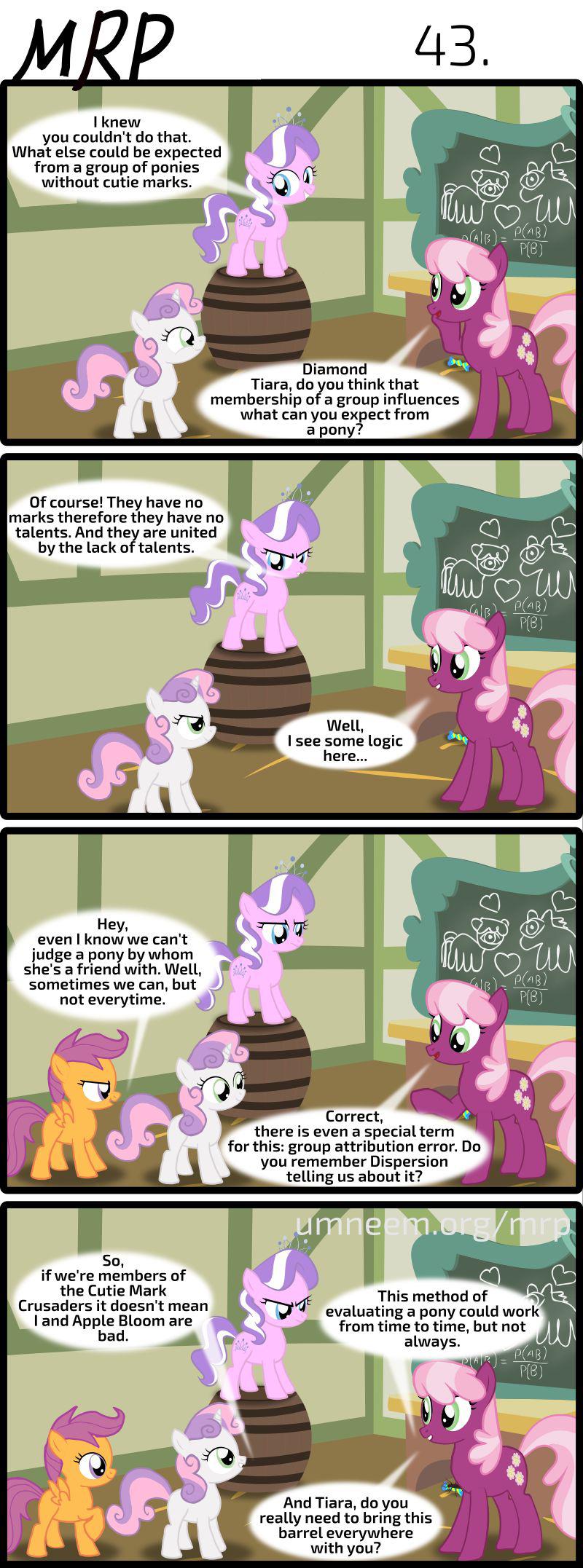
- It is the second type of group attribution error, which was demonstrated in the previous issue.
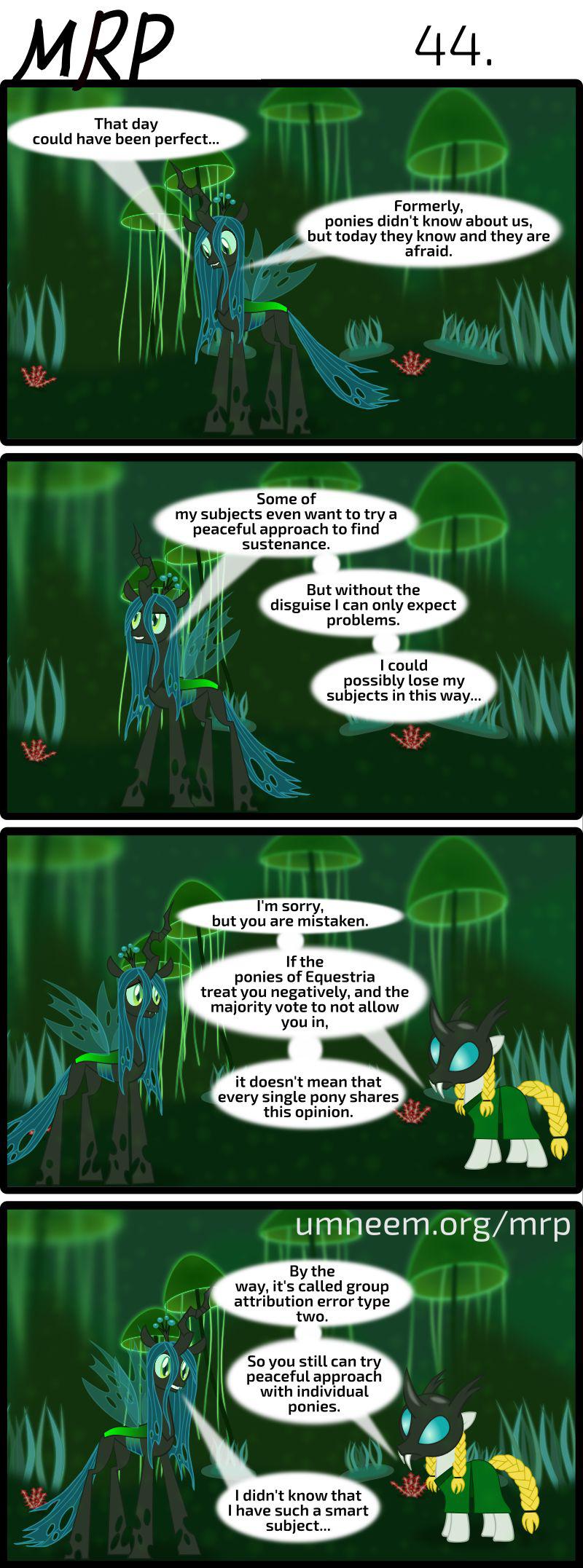
- People tend to overestimate how precisely others can understand their emotional states. And the vice versa: people usually overestimate how precisely they can understand the emotional state of others.
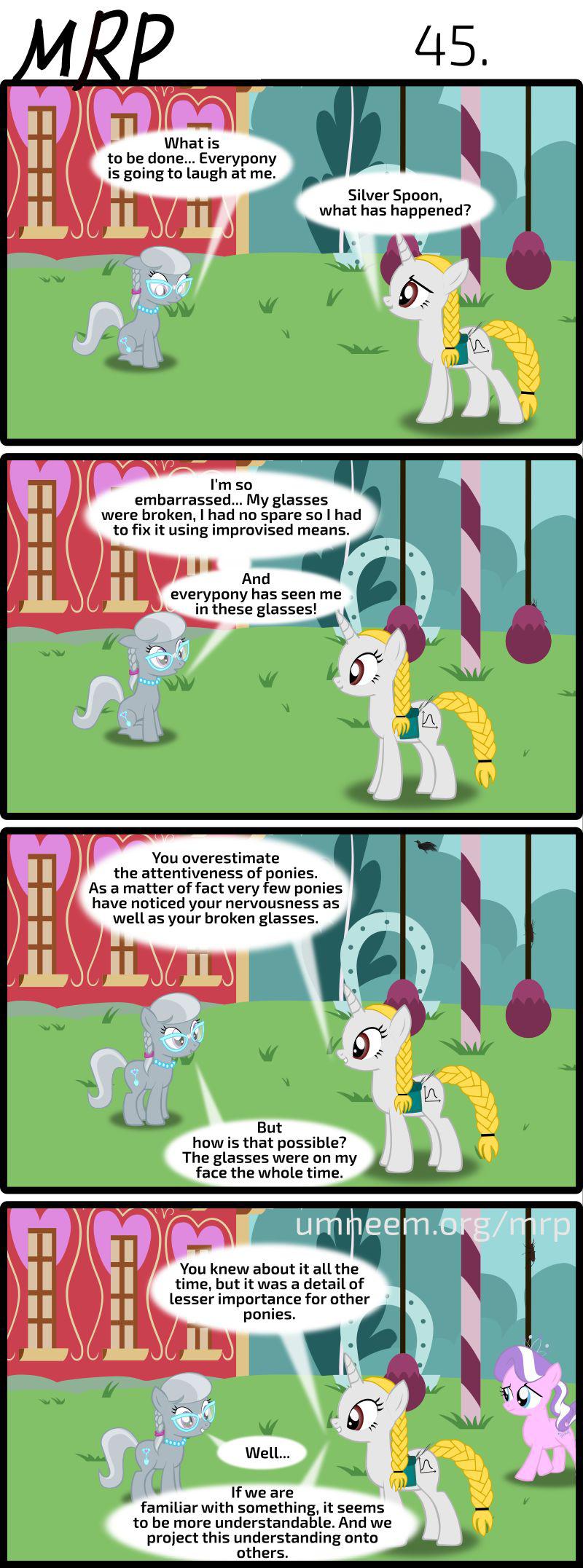
- The tendency poses a serious problem with conducting research with self-reports, especially questionnaires.
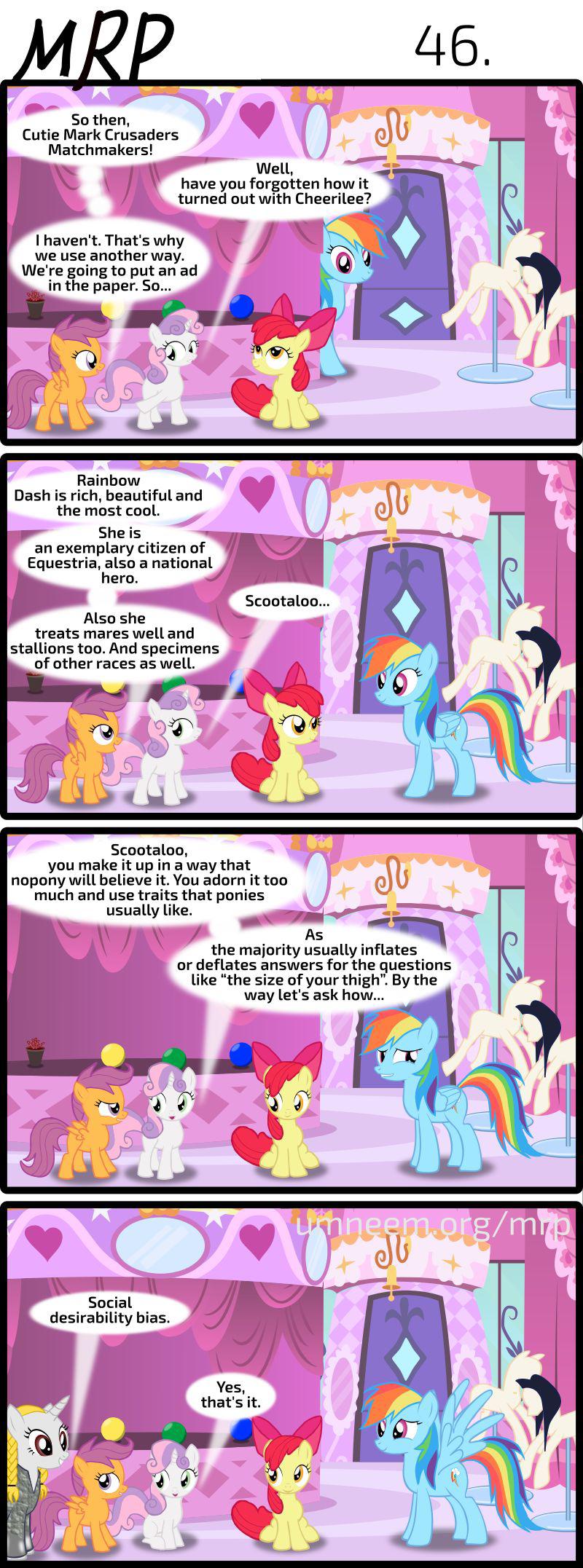
- Reactance is a name for this kind of psychological reactions. But there is also a method named reverse psychology from applied psychology. It is a method of persuasion based on the reactance effect.
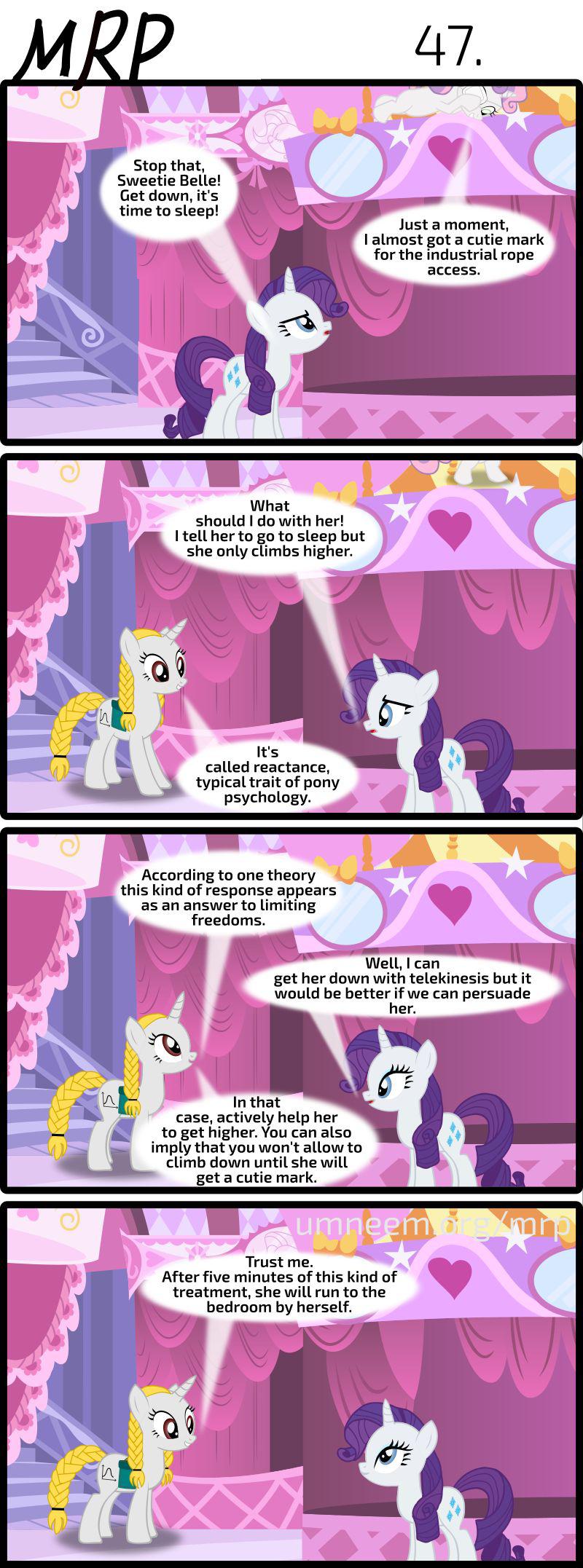
- The just-world hypothesis is an irrational explanation of some phenomena, which is usually perceived as negative. This cognitive bias is also known as “just-world fallacy”.
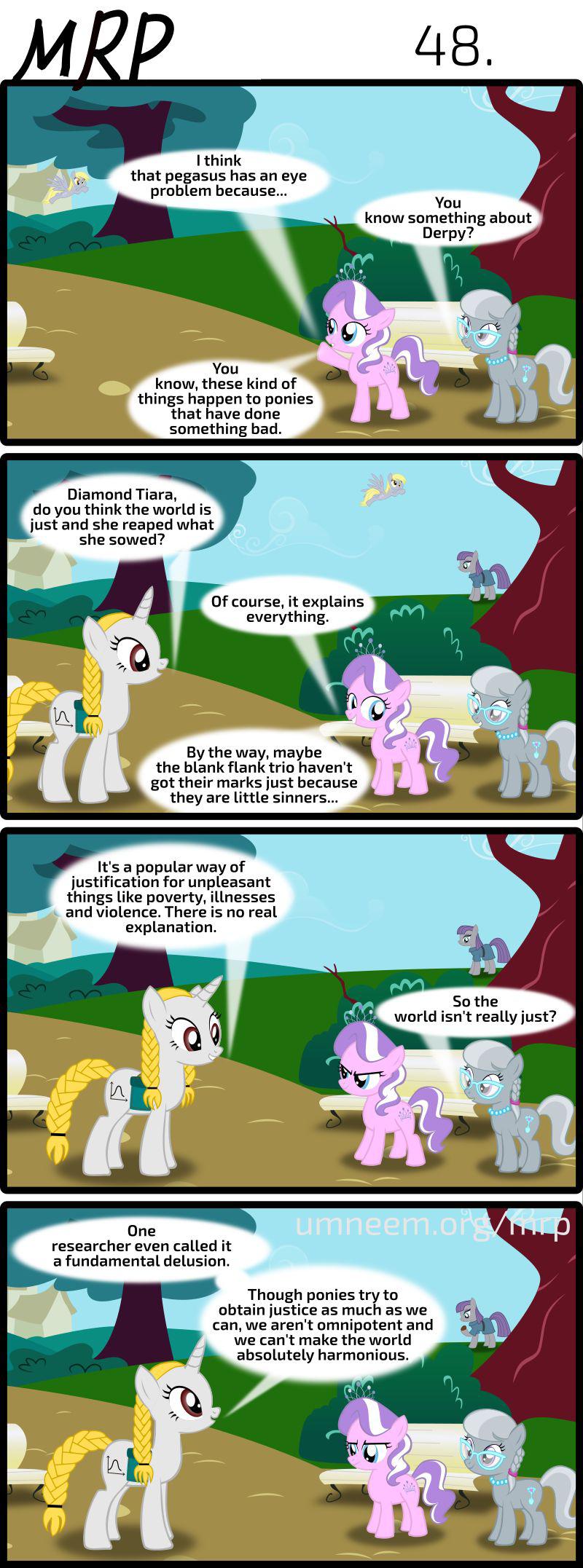
- The effect may become synergistic with the frequency illusion. And the effect can be reduced if a person successfully recollect information about source of memories.
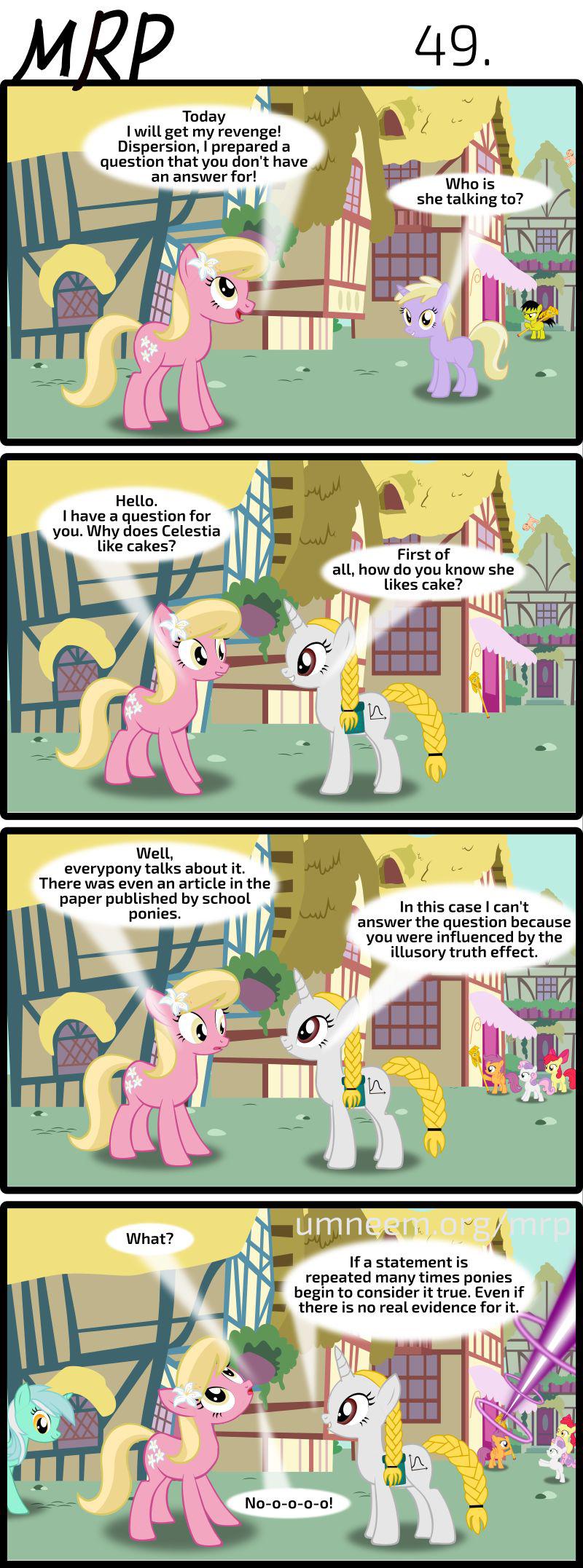
- An example of information bias is believing that an additional information should be found even if it is irrelevant for the decision making.
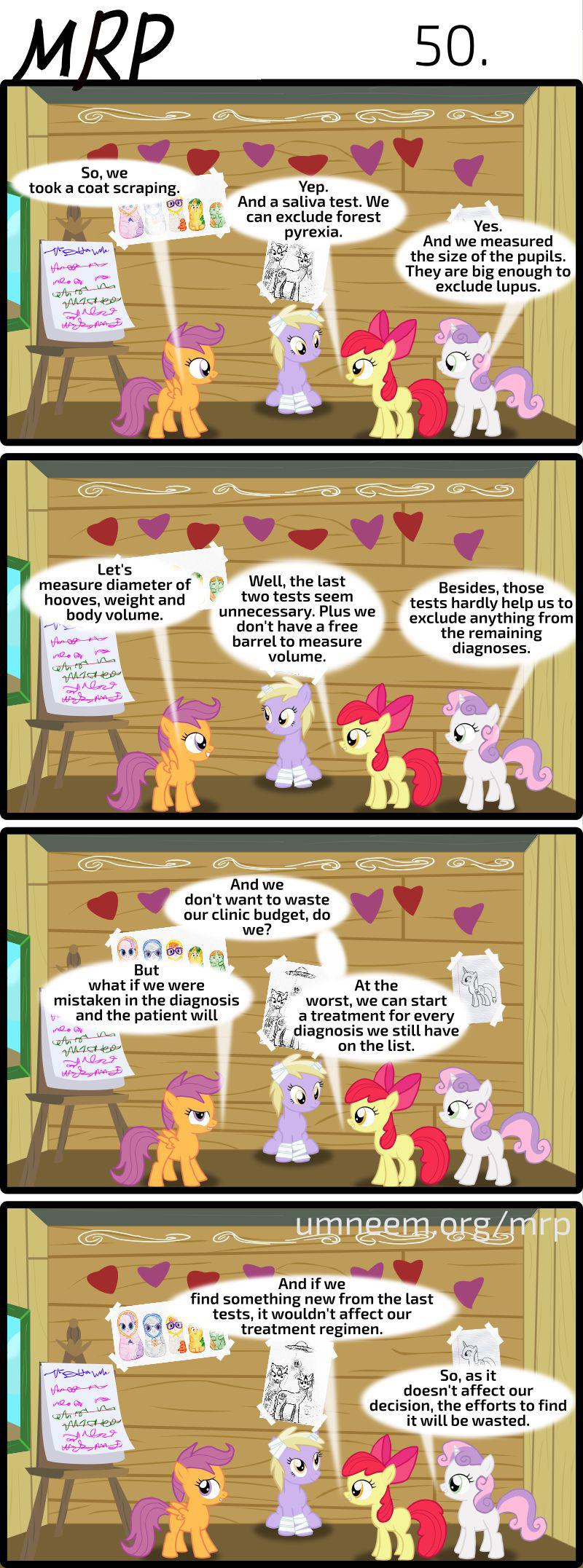



 Comics list
Comics list  Artists list
Artists list  Preferences
Preferences







 Contact
Contact  Pages 31 - 40
Pages 31 - 40










